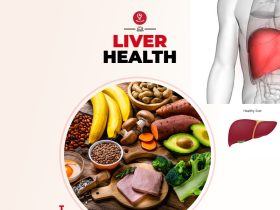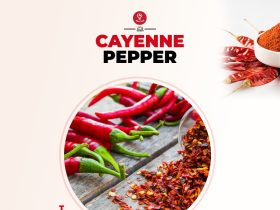
Chickpeas is a type of legume food, scientific name is Cicer arietinum, and also known as garbanzo beans. They have been grown and eaten in Middle Eastern countries for thousands of years.
These dry edible seeds of legume plants has a round shape and a beige color with nutty taste and grainy texture. The most common varieties are black, green, or red pair well with many other foods and ingredients.
Often, chickpea nutrition includes high protein, and rich source of vitamins, minerals, and fiber. Additionally, Some possible health benefits of chickpeas include aiding weight management, improving digestion, and reducing your risk of disease.
Moreover, as a rich source of non-animal protein, chickpeas can make an excellent substitute for meat in many vegetarian and vegan recipes.
Some people even consider them a superfood for their various nutritional components. Learn about the health and nutrition benefits of chickpeas.
What are the Nutritional Benefits of Chickpeas?
| Nutrient Content | Per 100 g |
| Energy | 200 |
| Protein | 12 grams |
| Total Fat | 3grams |
| Carbohydrates | 30.9, including 4.8 g of sugar |
| Fiber | 7.6 grams |
| Magnesium | 14% of the DV |
| Phosphorus | 18% of the DV |
| Potassium | 7% of the DV |
| Sodium | 6% of the DV |
| Zinc | 19% of the DV |
| Vitamin B-6 | 10% of the DV |
| Thiamine | 12% of the DV |
| Vitamin c | 8% of the DV |
| Selenium | 8% of the DV |
Chickpeas Benefits
Here are some common questions related to the benefits of chickpeas:
Are chickpeas a good source of protein?
Yes, chickpeas are a great source of protein! They’re particularly rich source of non-animal protein.
They are a great source of plant-based protein in many vegetarian and vegan recipes that don’t eat meat or animal products.
Also they contain about 15 grams of protein per cooked cup (240 grams), which is comparable to the protein content of similar foods like vegetables and legumes.
The protein in chickpeas can aid weight management, help control your appetite, and promote bone health and muscle strength. This legume is a great option for those who have trouble controlling their appetite.
Can chickpeas improve digestion?
Yes, chickpeas can significantly improve digestion!
Chickpeas are rich in dietary fiber, which offers several benefits for digestive health. They contain 10 grams of fiber per cooked cup(100 grams).
Fiber helps add bulk to your stool, meaning that it blends with water to form a gel-like substance, which can promote regular bowel movements and prevent constipation.
Moreover, fiber may increasing the number of healthy bacteria in your gut . A healthy balance of gut bacteria can improve digestion and overall gut health.
Thus fiber promotes the growth of healthy gut bacteria and can help support digestive health by improving the frequency and consistency of bowel movements.
How do chickpeas benefit heart health?
Chickpeas are an great source of soluble fiber, which helps reduce triglycerides and LDL (bad) cholesterol and blood pressure. Those characteristics are risk factors for heart disease.
They are a great source of several vitamins and minerals that are beneficial for heart health, such as potassium helps to manage blood pressure by balancing sodium levels in the body, magnesium support heart health by helping prevent high blood pressure, folate reduce levels of homocysteine — a major risk factor for heart disease.
Generally, they are contain antioxidants like flavonoids, carotenoids, and phenolic acids. Some evidence suggests that those antioxidants have anti-inflammation and antioxidant properties that reduce the risk of heart disease.
What vitamins and minerals are found in chickpeas?
Chickpeas boast an impressive nutritional vitamin profile such as Folate (Vitamin B9), Vitamin B6 (Pyridoxine), and Vitamin C.
On the other hand they also provide a variety of minerals such as (A 1-cup (164-gram) serving of cooked chickpeas offers) manganese that is 74% of the Daily Value (DV) – good for treating inflammatory disorders and decreasing risk for health conditions like stroke, copper that is 64% of the DV – maintain healthy bones and immune function, iron is 26% of the DV – vital for the formation of hemoglobin and helps carry oxygen to different body parts, magnesium – 19% of the DV – which helps regulate blood sugar, blood pressure, and muscle and nerve function, Phosphorus – 22% of the DV – is important for heart and muscle function, Zinc – 23% of the DV – Crucial for wound healing. As well as a decent amount of fiber and protein.
How can chickpeas help manage diabetes?
First, they have a fairly low glycemic index (GI), which means they have a slower, more gradual effect on blood sugar levels – crucial for managing diabetes.
Additionally, these peas are full of fiber, which may aids in regulating blood sugar levels. That’s because fiber slows down the absorption of carbohydrates have been shown to promote a steady rise in blood sugar levels after meals.
What’s more, they are an excellent source of plant-based protein. Protein-rich foods may also help slow the absorption of carbohydrates and help with maintain healthy blood sugar levels.
Are chickpeas good for bone health?
Chickpeas has many benefits for bones. A research paper related to this suggests that the estrogenic activity of isoflavones present in sprouted chickpea extract may be helpful in the problem of osteoporosis i.e. weakening of bones due to lack of estrogen.
Apart from this, they are rich in calcium. At the same time, calcium is the most important element for bones. It can help in making bones healthy and keeping them strong. The body cannot produce calcium, so it is supplied with calcium-rich foods . On this basis, the benefits of eating soaked chickpeas for strong bones can be seen.
Can chickpeas improve skin health?
Chickpeas also have many benefits for the skin. The manganese present in it can reduce the effects of aging by removing wrinkles. Moreover, vitamin-A is also present in gram, which can work to remove wrinkles. Not only this, they is also rich in vitamin-C, which can be beneficial for the skin.
Actually, vitamin-C can work to keep the skin healthy by increasing collagen. Apart from this, vitamin-C can also protect the skin from harmful rays of the sun. On this basis, it can be believed that sprouted chickpeas can prove to be very beneficial for the skin.
You can also make a face pack with chickpeas and apply it on your face.
How do chickpeas help with weight loss?
Chickpeas may help in weight loss due to their nutritional profile and satiating properties.
The fiber in chickpeas adds bulk to your diet, which reduce your appetite and overall calorie intake. This may help you eat less, help control appetite and reduce cravings.
As they are high in protein, which benefits your satiating than carbohydrates or fats and support muscle maintenance during weight loss.
On the other hand, if chickpeas is eaten with its peel, it is digested slowly and one does not feel hungry for a long time.
How can I incorporate chickpeas into my diet?
Chickpeas are incredibly affordable and easy to add to your diet.
These dried edible seeds are versatile and widely available in both canned and dry varieties. They are available throughout the year. You can buy them from grocery stores or supermarkets. Chickpeas can be used in many ways. You can include them in your diet in the following ways –
- You can roast chickpeas for a tasty and crunchy snack.
- Chickpeas can be used in a variety of recipes, such as salads, soups, or sandwiches.
- Chickpeas can be cooked as you would any other vegetable.
- They can be used in falafel, veggie burgers and salads. You can add it to tacos.
- They’re the main ingredient in hummus.
- Boil chickpeas and add olive oil, lemon juice, and salt and eat.
Conclusion
Chickpeas are a member of the pulse family, are the dried edible seeds of legume plants.
They are very healthy and versatile, and incredibly easy to add them to your diet. Often, chickpea nutrition boasting vitamins, minerals, fiber, protein and healthy fat contents.
Some possible benefits of chickpeas include helping support weight management, improving digestion, and bone health while reducing your risk of heart disease and cancer.
RELATED ARTICLES
Sep 24, 2024
The Ultimate Guide to Foods That Support Liver Health
A balanced diet that includes nutrient-rich foods and avoids fried or highly salty foods is extremely helpful in maintaining liver[...]
Sep 11, 2024
Cayenne Pepper: A Spice with Surprising Health Benefits
Cayenne pepper has been used for medicinal purposes for centuries, and it has been extremely important not only as a[...]
Sep 06, 2024
Okra Water: The Surprising Super Drink You Didn’t Know!
The wellness world has always been full of questionable and bizarre trends, and the rise of TikTok has only spread[...]
RECENT POSTS
Disclaimer
The content is purely informative and educational in nature and should not be construed as medical advice. Please use the content only in consultation with an appropriate certified medical or healthcare professional







